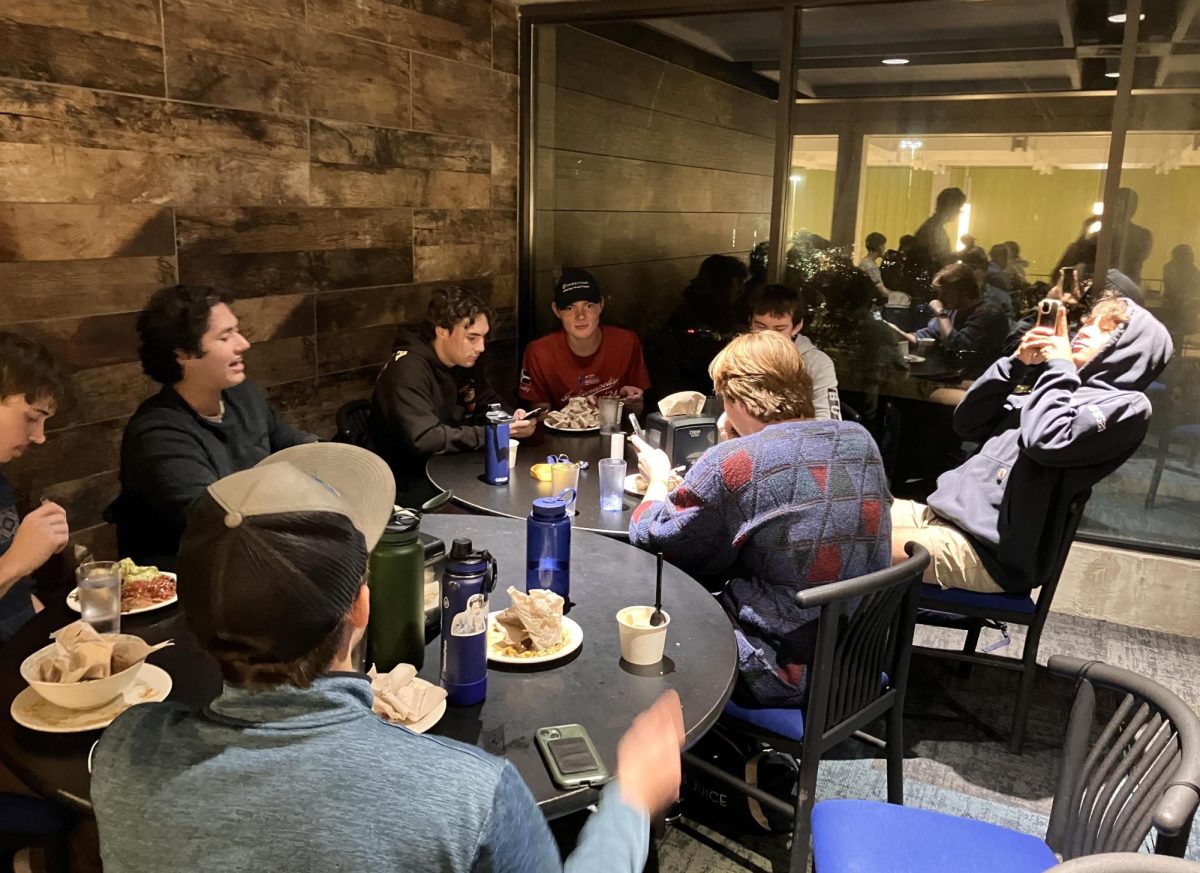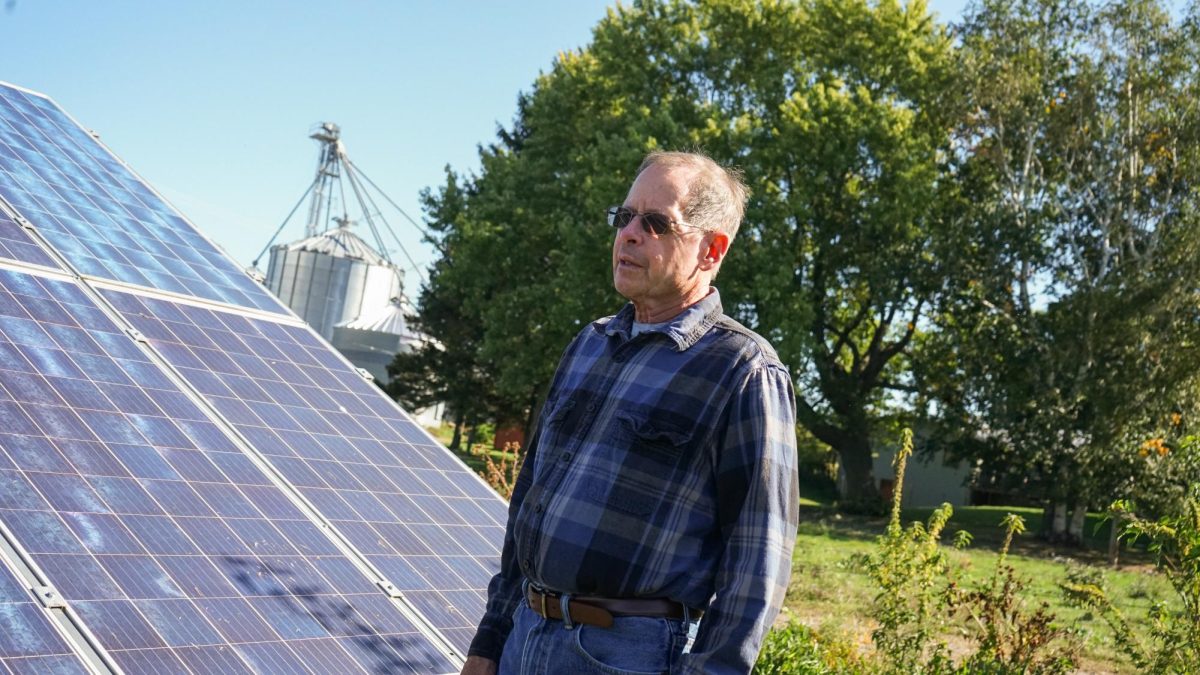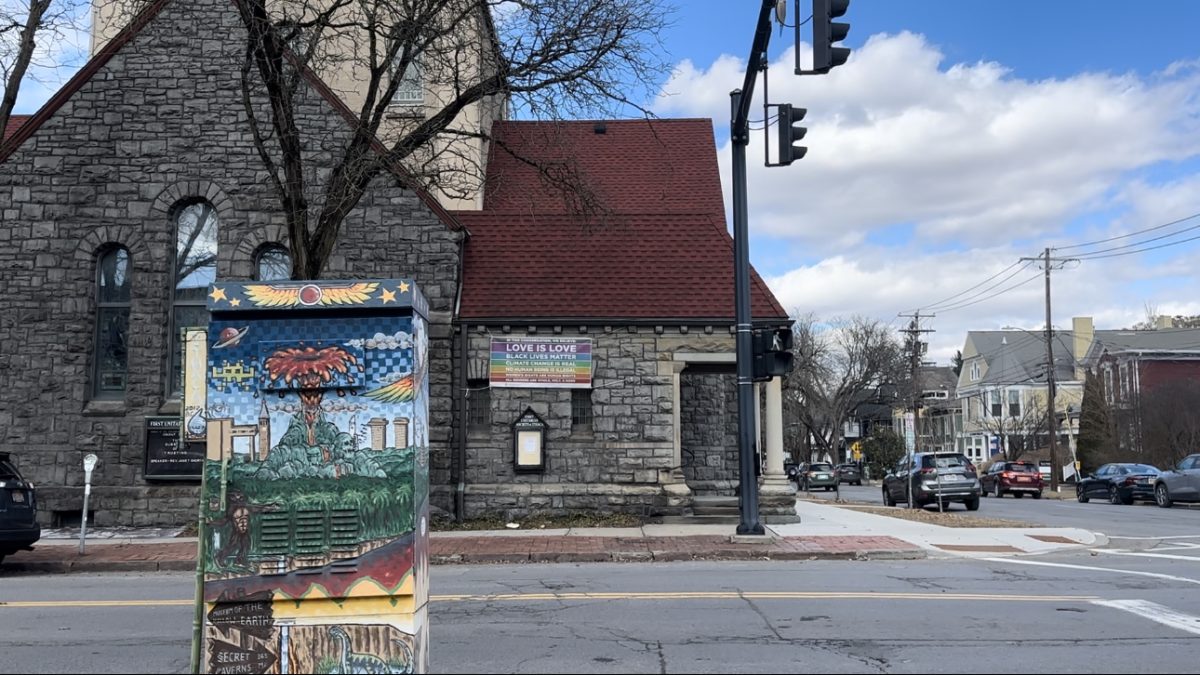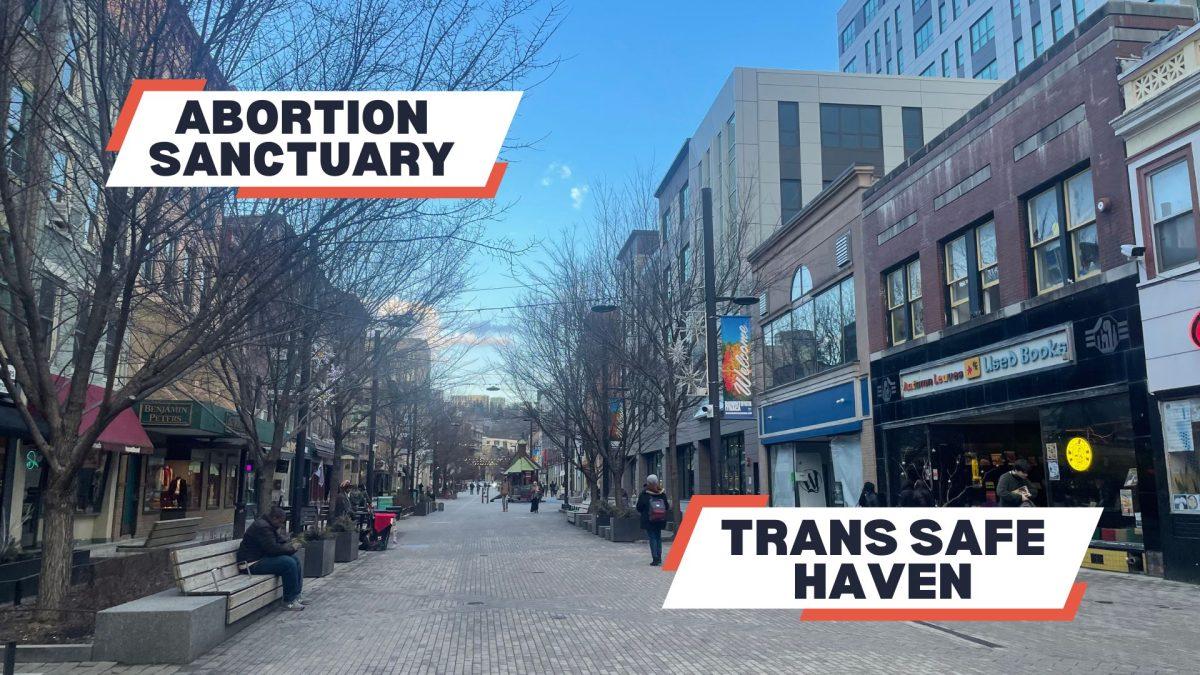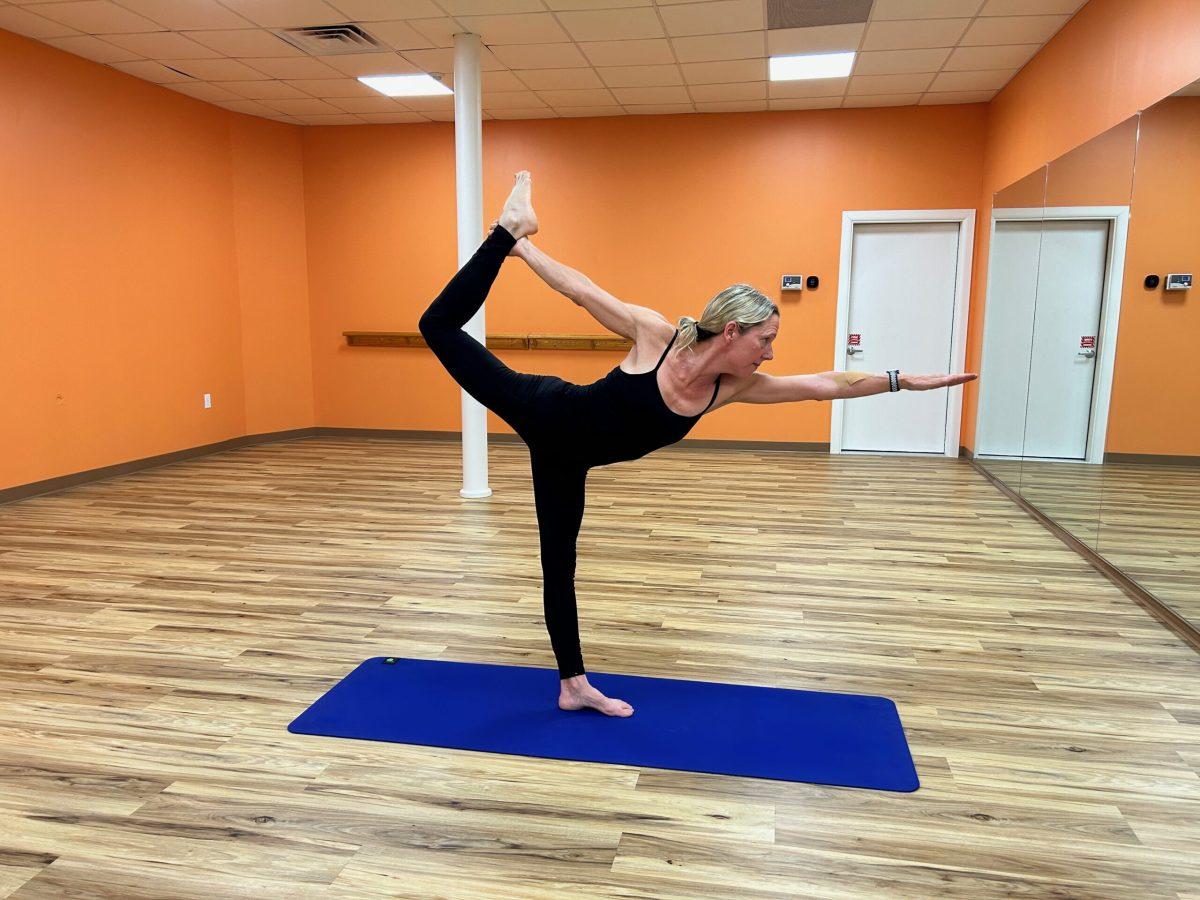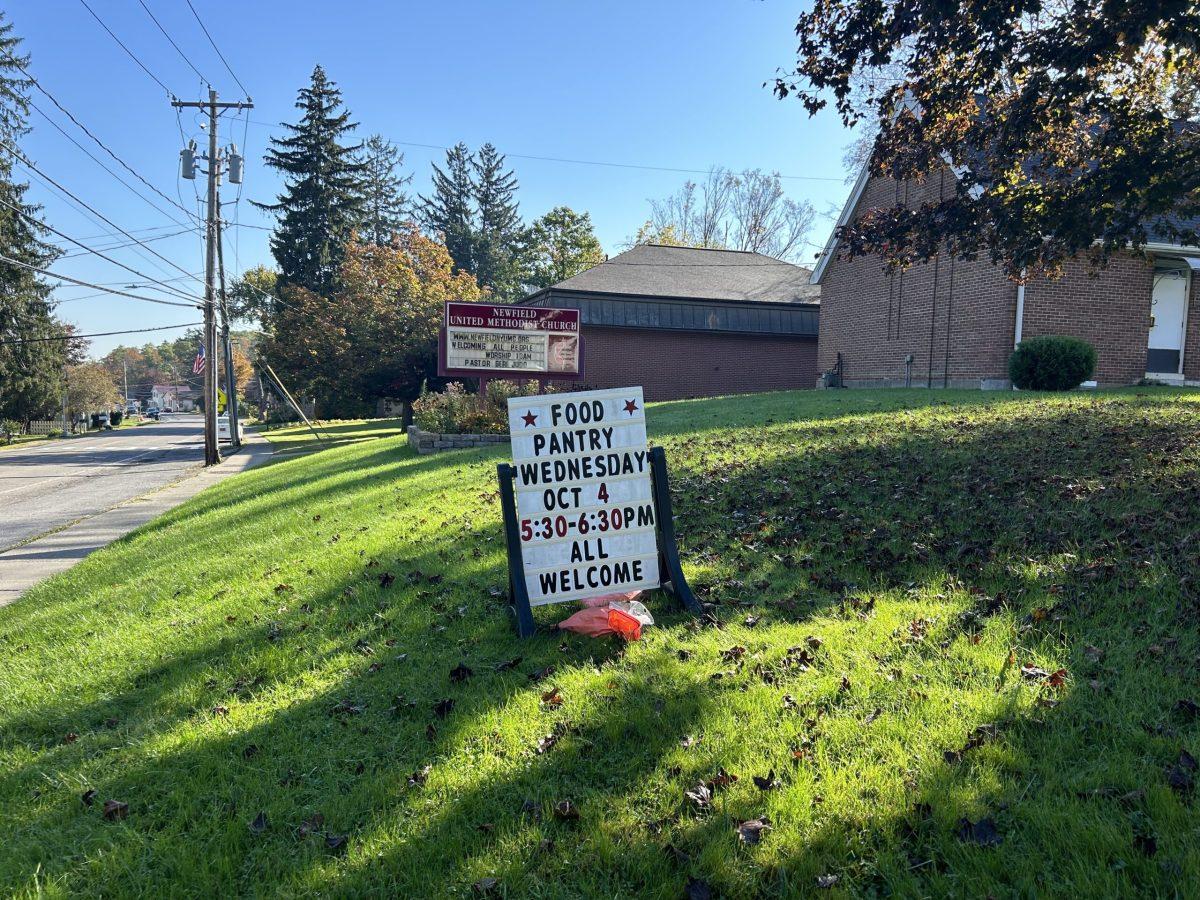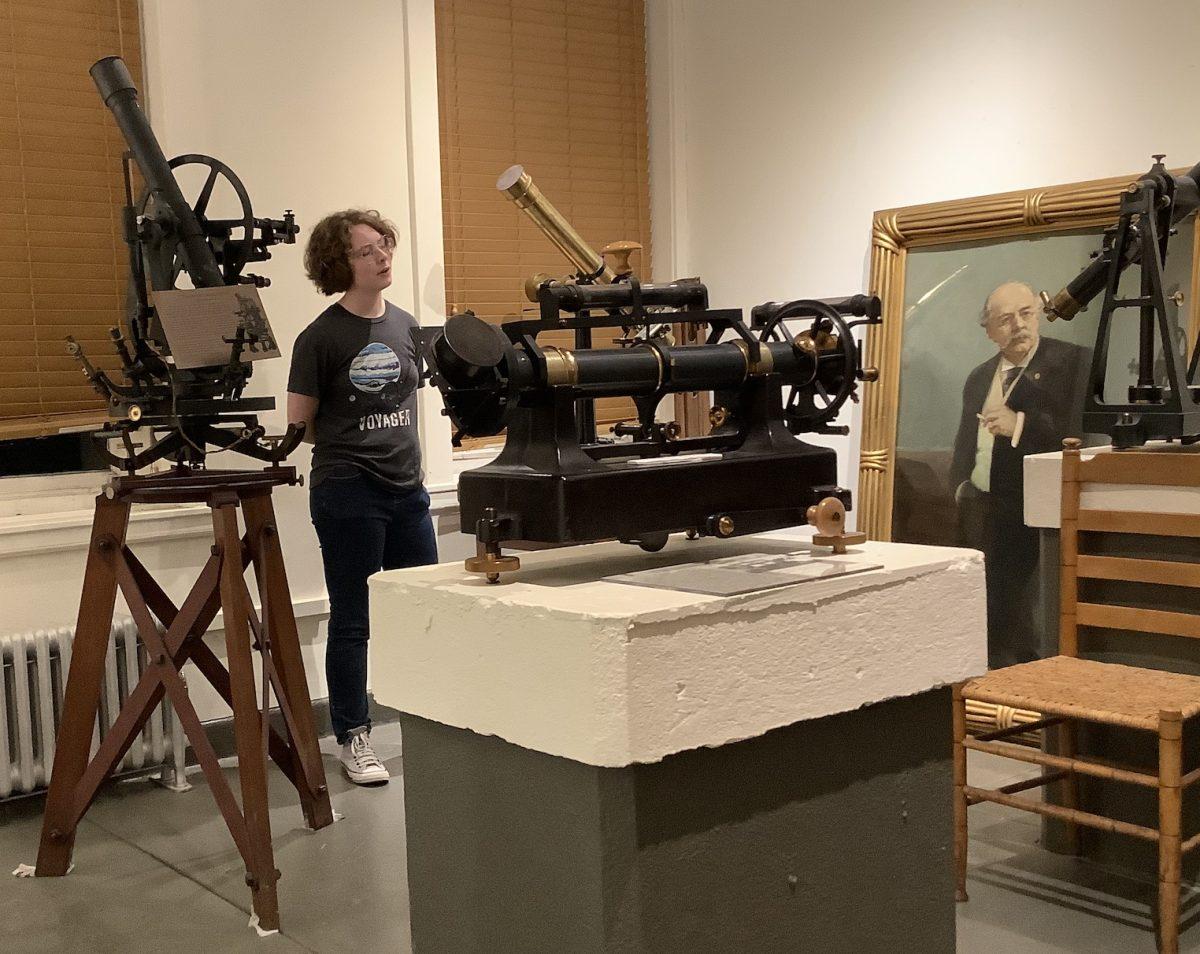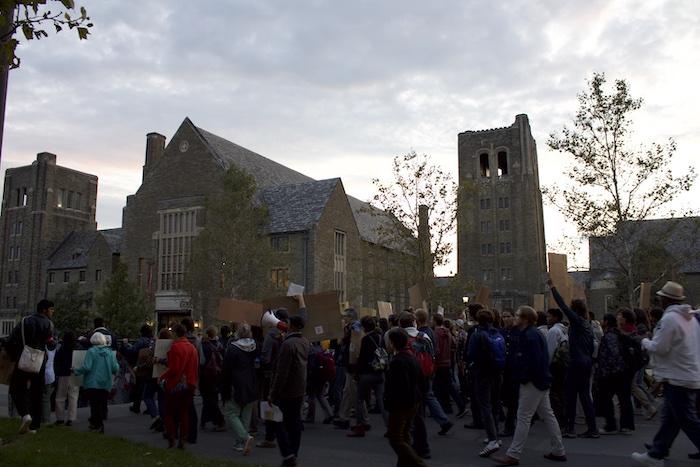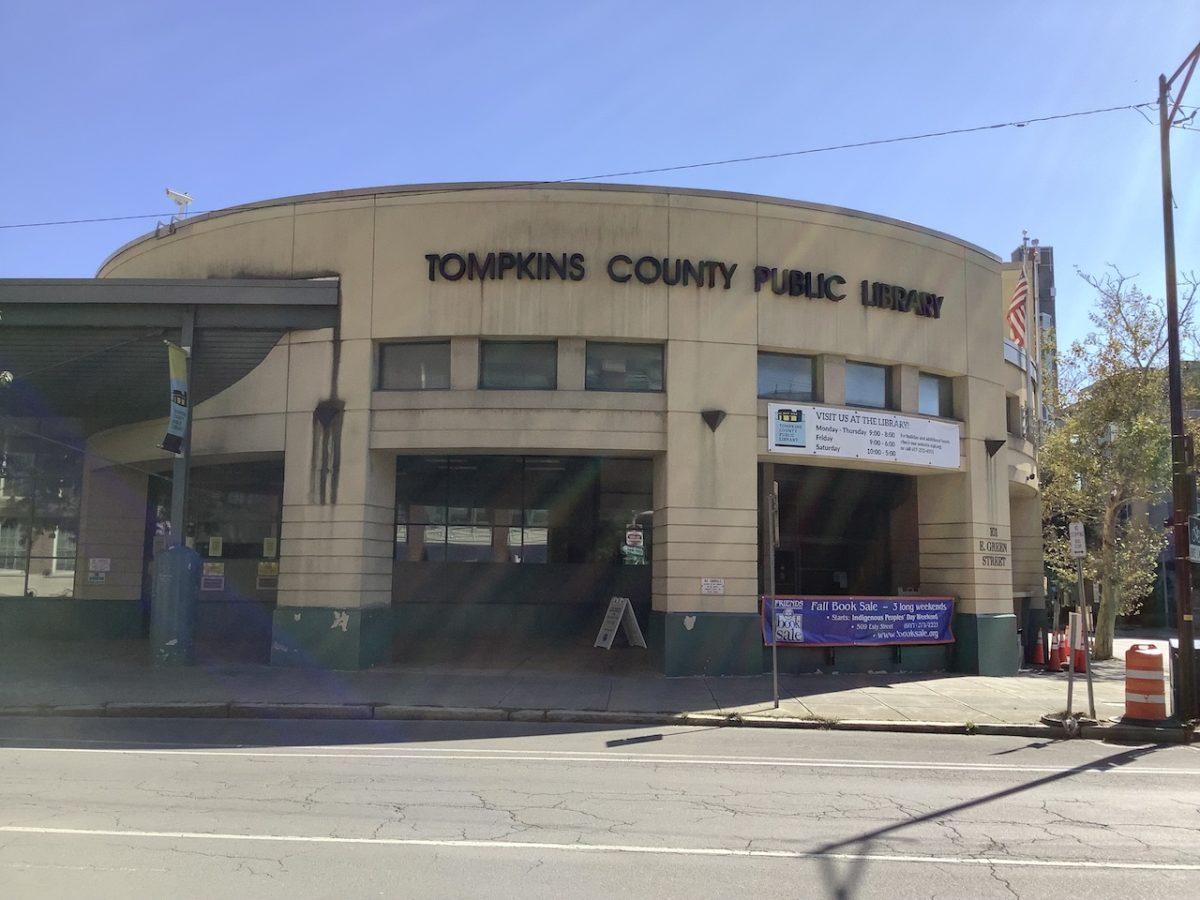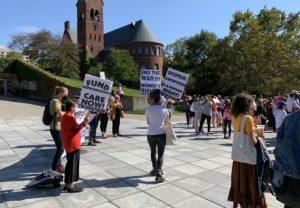
Across the nation, Americans gathered in parks, town squares and in the street to protest Texas’ restrictive abortion law, known as Senate Bill 8. Passed in May, the law makes getting an abortion in Texas virtually impossible. In Ithaca and Elmira, protesters young and old joined together to show their support for those in Texas as well as demand change.
What is Senate Bill 8 and Does it Conflict with Other Court Rulings on Abortion?
Senate Bill 8 was signed into law by Texas Governor Greg Abbott in May but did not come into effect until last week. The law bans abortions that would occur after the 6-week mark of the pregnancy. It also doesn’t give exceptions to those who are victims of rape or incest. The law has received backlash from numerous rights groups such as Planned Parenthood for not only its incredibly restrictive nature but for violating a prior ruling that stated that “the right of the women to choose to have an abortion before viability and to obtain it without undue interference from the state”.
The contradiction between the Texas law and the legal precedent set the stage for a legal showdown as Whole Women’s Health challenged the law, a case that made its way all the way up to the Supreme Court. The Court refused to block the law. Not only was the denial a blow to Texans challenging the law, it also raised serious questions about if Roe v. Wade could withstand another challenge given the political split of the Court.
Responding to Texas
In response to the Texas law, the Women’s March organization put out a call to their chapters nationwide, to organize marches and gatherings protesting the law as well as showing solidarity with those in Texas affected. Marches in larger cities gathered thousands in the streets, here in Central New York, protests were held throughout the region.
In Elmira, the Women’s March Elmira chapter held its protest at Wisner Park. People of all ages joined the protest sharing their own personal experiences with abortion and having access to adequate reproductive healthcare. One protester, with a bullhorn in hand, walked on to stage how she had been marching for nearly 55 years. She remained hopeful in their efforts, but one could hear the fear in her voice when she described not being able to continue to fight on the front lines due to her age.
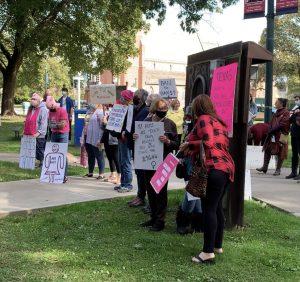
While many protesters explained their experiences of being thankful for having abortion access, there were those in attendance who spoke about how not having abortion access caused loss in their lives. One of the speakers opened up about losing her aunt due to complications during a pregnancy and not having access to an abortion to save their life.
The East Hill Answers the Call
Here in Ithaca, Cornell University’s Ho Plaza, became the home of a protest organized by the Planned Parenthood of Ithaca as well as Planned Parenthood Generation Action of Cornell University, the club gives an opportunity for students to learn more about reproductive rights, healthcare and help in the community.
Assemblymember Dr. Anna Kelles was the first to speak at the event, promising continual effort from herself as well as holding other New York lawmakers, like Senate Majority Leader Chuck Schumer, accountable for their commitment to reproductive healthcare.
“In New York State we passed the reproductive health act” assemblymember Kelles giving a breakdown on how the state has pushed and expanded access to abortion and women’s health care
— Alyssa Spady (she/her) (@alyssa_spady) October 2, 2021
Along with Dr. Kelles, Ithaca College Professor Zillah Eisenstein spoke about her generational span on the movement. Eisenstein recalled the harrowing experiences while waiting on friends that had to get abortions. She recalled sitting waiting to hear whether or not her friends had lived or died, always preparing herself for the worst. “Stop the war on women! It is a war okay, it isn’t some liberal piece of just legal theory here”. Emotions were high from Einstein as well as other speakers, and rightfully so as many feel as though this could cause a domino effect that eventually leads to the fall of Roe v. Wade. Einstein passionately spoke into the bullhorn with this underlying tone of defeat, “If I sound angry it’s because I am. So many years”.
Why SB8 Poses a Threat to Those in Need of Reproductive Healthcare
With what feels like radio silence from the Supreme Court has had a massive ripple effect in political discourse over the past few weeks. The concern is not only that access to abortion has been practically taken away, the deeper concern lies in who will be able to leave the state potentially to get an abortion.
According to the Texas Tribune, two days after the bill went into effect, reproductive health clinics in surrounding states, like New Mexico, became clogged with calls and appointments from those just over the state border. By Thursday of that week, abortion clinics in New Mexico were fully booked for weeks.
according to @NatAbortionFed, only 18 abortion clinics are in TX, these 18 clinics will be unable to provide vital health procedures to those in need of them pic.twitter.com/1q3hCPOPzb
— Alyssa Spady (she/her) (@alyssa_spady) October 6, 2021
People of color and those in the lower socio-economic class, may not have the luxury of just picking up and leaving to access an abortion clinic in one of the surrounding states. According to the Texas Department of Health and Human Services, in 2021 (this data is through May of this year due to SB8) Hispanic persons made up 35% of abortions and Black persons made up 30% of all abortions in Texas. Amongst Hispanic and Black persons across the nation, giving birth, their mortality rate is higher than white persons. Having access to abortions, not just in cases of unwanted pregnancies, but in cases where the pregnancy can become a threat to the person carrying the baby, could be a major factor in decreasing the number of preventable deaths amongst communities of color while giving birth.
Texas’ Senate Bill 8 has brought a renewed fear over not just access to abortions, but if this could mean the beginning of the end of Roe v. Wade as well as how marginalized communities will be affected by the limited access. Reilly Shingler and Julie Ganbarg, members of the Planned Parenthood Generation Action chapter here on Ithaca College’s campus, both explained the fears that they have been hearing from students across campus. Through meetings, their club has given those who attend the tools to be part of the resistance towards SB8. Shingler emphasized how this bill “completely takes choice out of the hands of women”.
Like so many at the protests, Shingler and Ganbarg said they share a common hope that with enough resistance and with the media attention that these protests gathered, more Americans will join the fight to keep access to adequate reproductive health as well as abortion access open for all.

